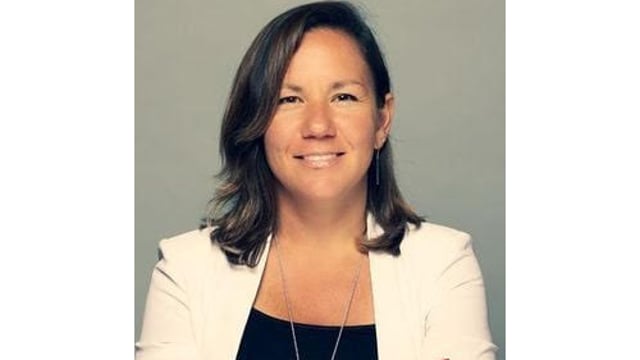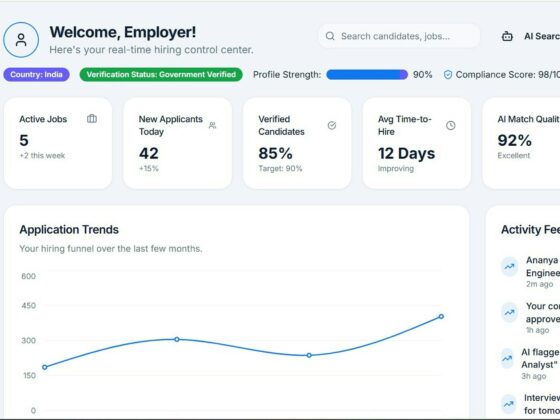
What were your career aspirations as a young adult?
I didn’t really have any career aspirations—mostly because I grew up in the Soviet Union, where “aspiration” was not a concept we discussed. My main goal was to survive, stay warm in the winter and hopefully get my hands on a Snickers bar once in a blue moon. Dreams like “I want to be a hotel technology expert” were not on the menu—mostly because I didn’t even know hotels or technology existed in the way they do now.
What inspired you to pursue a career in the hospitality industry, specifically focusing on revenue management and technology?
I stumbled into hospitality like a lost tourist in Times Square. I moved to the U.S. in my 20s to make some money for my family, and the industry greeted me warmly … by offering 90 hours a week of housekeeping.
From there, I climbed my way through property-level and then corporate roles: front office, night audit, sales, marketing—you name it. And then one day, like a light breaking through storm clouds, revenue management appeared. It was love at first spreadsheet for my introverted personality.
That love affair with numbers and data inspired me to launch my first startup—the industry’s first RMS powered by machine learning and AI (before it was cool). We eventually sold it to a PMS provider, and that’s how my tech journey officially began.
Did you have any mentors who really helped guide you through your career?
Yes. Dana Blasi, my former employer, mentor, biggest cheerleader and best friend. Dana is the president of a local San Diego hotel management company and a hotel owner who’s been contributing to the industry for decades. He was the first person to give me a crash course in revenue management—when I was still in Belarus. He believed in me before I even knew what ADR was.
Dana supported me through every step of my career. He even volunteered his hotels as guinea pigs for my RMS algorithms, which was both brave and slightly reckless—but it paid off when we increased his RevPAR by 30% year over year after launch. He celebrated my successes as if they were his own, and I credit him with planting the seed for my first book on revenue management (and a lot of other great ideas that shaped my life). Honestly, I wouldn’t be where I am without him.
You’re a well-traveled woman. How have your travels enriched your understanding of global hospitality trends?
Absolutely. You can’t really call yourself a global hospitality professional if your international experience consists of ordering sushi in Las Vegas. Traveling allows me to see the industry through different cultural and operational lenses. I’ve seen properties that run like Swiss clocks—and others that run like a reality show gone wrong.
Technology adoption varies widely by region, and understanding those differences helps me keep an open mind and a realistic perspective. Travel has taught me that there’s no “one size fits all” in hospitality. I always use this mindset in my consulting practice, appreciating the uniqueness of every client.
Over the past decade, how have you observed the role of revenue management evolving within the hospitality industry?
It’s evolved dramatically. What used to be a quiet, behind-the-scenes role is now the star of the show. Revenue management has moved from simply filling rooms to becoming the driving force behind profitability. It’s shifted from “revenue management” to “revenue and profit optimization,” which is a completely different game with a new set of KPIs.
It’s also the glue holding everything together. Revenue management was the first discipline in our industry to figure out what to actually do with data. Everyone else is now playing catch-up.
In your experience, what aspects of revenue management are hoteliers excelling at today?
Honestly? We’re still not there yet. But I’ll give credit where it’s due—we’ve seen more automation in recent years, which is a step in the right direction. Still, the adoption of even the most basic practices (hello, dynamic pricing!) is far from universal. There’s progress … but also a lot of homework left to do.
Conversely, where do you see the most significant gaps or areas needing improvement, especially among midscale and independent properties?
The biggest gap is technology adoption. And not just buying shiny tools, but actually using them effectively. We also need to shift from focusing solely on top-line revenue to true profit optimization.
Other areas:
– Driving more direct bookings instead of feeding the OTA beast.
– Leveraging third-party market data, instead of making decisions in a PMS bubble.
– Encouraging collaboration between revenue, sales, marketing, distribution and operations (aka, stop working in silos).
– And yes … embracing AI.
How has technology transformed revenue management practices in recent years?
For those who actually use it (and sadly, that’s still not everyone by far), technology has been a game-changer. It enables hoteliers to react quickly to market shifts, adjust pricing daily (or hourly), change restrictions, shift business mix, roll out promotions and maximize both efficiency and profit. A good RMS can boost profitability by 20% year over year. I’ve seen that happen.
You’ve emphasized the importance of user-friendly and integrated systems. What are the key features that make technology truly beneficial for hoteliers?
It’s simple:
– User-centric design. Build tools for the people who will actually use them, not because an executive had a “brilliant” idea while showering.
– Seamless integration. No Frankensteins. No duct tape solutions. Tech has to work with existing workflows, not against them.
If a system feels like an extra chore, people won’t adopt it, no matter how many “game-changing” features the sales brochure promises.
Are there any emerging technologies or tools in the hospitality sector that you’re particularly excited about, and why?
Yes. Drumroll … AI agents. I can’t wait for them to take over the booking process so it finally becomes as painless as buying socks online. There’s a caveat, though. OTAs have a chance to be the first to make it happen, which would be a sad day for the industry.
Ideally, hotels should own that relationship directly with the guest. It’s harder, yes—but much healthier in the long run. Think of it like eating vegetables instead of fast food—not as instantly gratifying, but much better for your health (and your bottom line).








